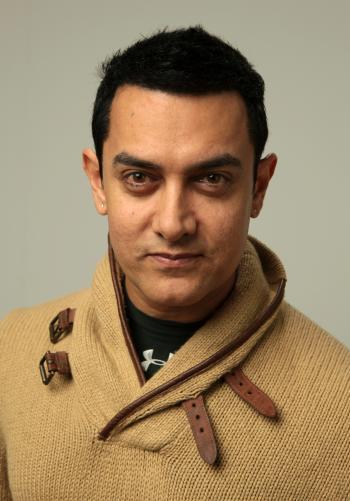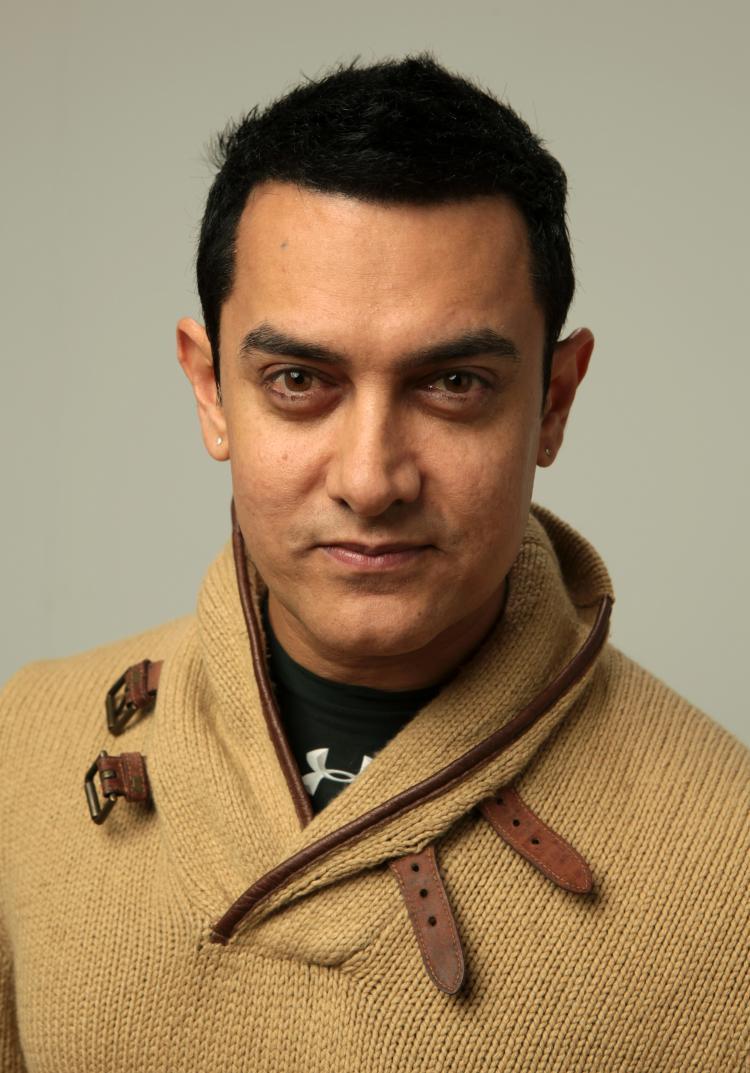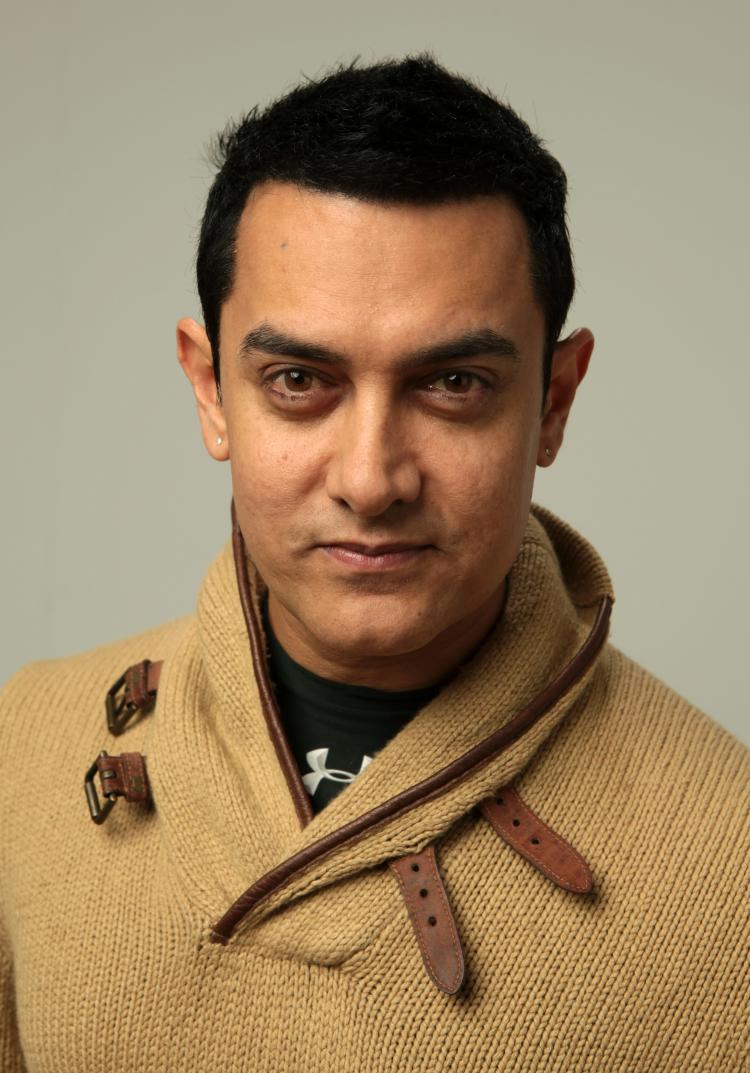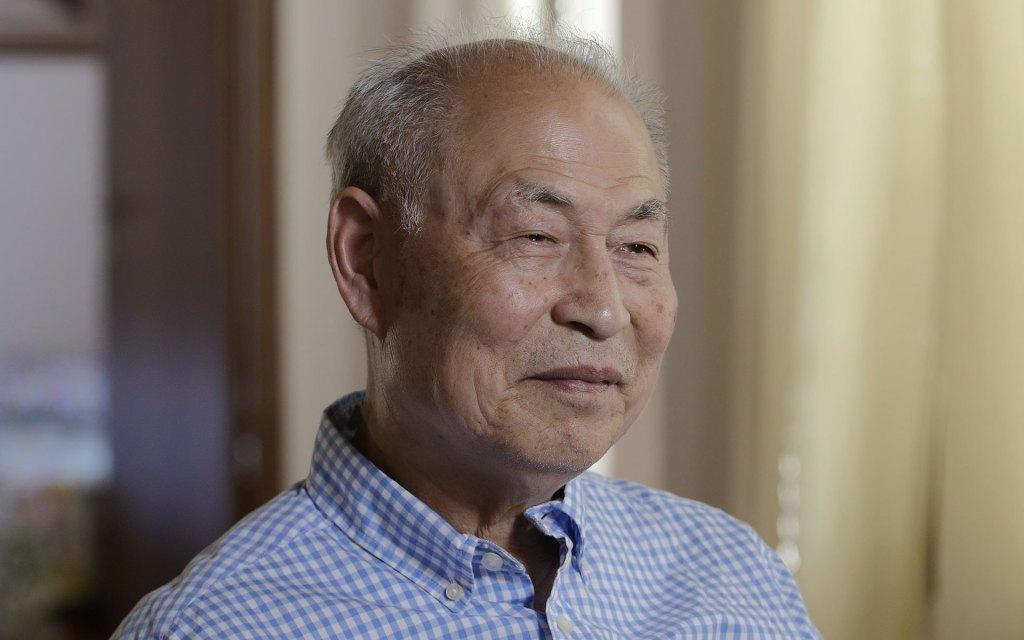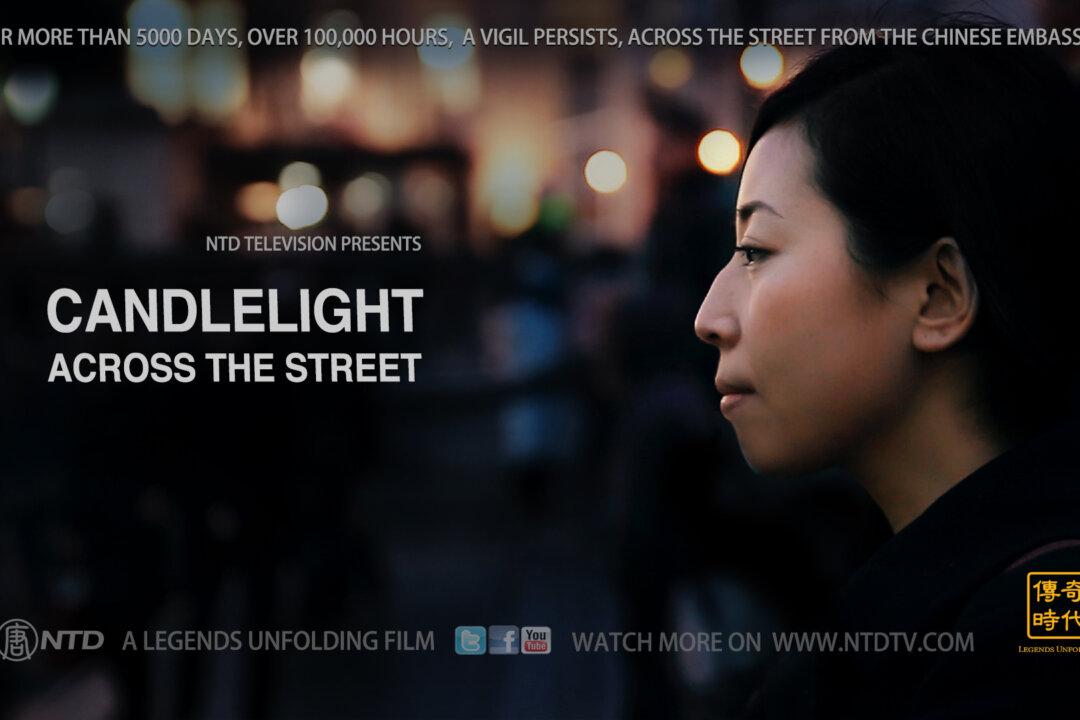“Peepli Live” producer Aamir Khan is usually in front of the camera, but for projects he is passionate about, he rolls up his sleeves and gets busy in the role of producer.
“I loved it,” said Khan of Anusha Rizvi’s script, in a phone conversation while he was in Los Angeles promoting the film on July 27, 2010, “it was moving, it touched me, it was funny, heartbreaking, and thought provoking—I loved it straight away.”
“Peepli Live,” a satire, is the ironic tale of a poor farmer, Natha (Omkar Das Manikpuri), who considers suicide as a solution to his financial hardships, when the government offers a substantial sum of money to the family of the farmer who takes his own life.
Addressing with humor, the somber and real issues facing India today and many other regions of the world, “Peepli Live” takes on the themes of industrialization, media, politics, poverty, and progress.
In response to the shocking number of farmer suicides, Khan relays that between 1991-2001 there were 180,000 farmer suicides, and the Indian government considered the option of paying those families.
“It got floated about 7 or 8 years ago,” explains Khan. Both the government and journalists have tried to ameliorate the exacerbating disparity between rural and urban life in India.
Khan, himself a city dweller, acknowledges, “We are oblivious to what is happening in rural India, which makes up most of the population.”
With scarcity of proper medical treatment, education, and clean water, Khan acknowledges, “Life in the village is not life-sustaining.”
“Migration from villages to the cities is not working in either direction,” he adds.
“The movie is about survival—how each of us in our own position is doing what we need to do to survive media, politicians, administrators, etc.”
Illustrating the universality of his new film, Khan explained that the Americans who were in the audiences at the Berlin Film Festival screenings of “Peepli Live,” drew similarities between the tragic absurdity in this film and what happened during the Katrina crisis, as the less privileged parts of society are left disenfranchised and ignored.
Khan sees that now he can use his success and career as a leading Bollywood actor for over 20 years, as a platform for new talent and burgeoning talent that has something to say, something to contribute.
“Well, producing is tough,” admits Khan, who has performed in over 40 films, and considers himself more the creative than business type.
“I don’t see myself as a powerful person,” responds Khan to the claim that he is the fourth most powerful person in India today. “I am just happy and excited to do what I am doing—to be supportive to the creative team and help them achieve their goals.”
In regards to the distinction of “Peepli Live” being the first Indian film ever shown in competition at the Sundance Film Festival this past year, Kahn says, “I am hoping that the film reaches and engages people in different parts of the world.”
“I loved it,” said Khan of Anusha Rizvi’s script, in a phone conversation while he was in Los Angeles promoting the film on July 27, 2010, “it was moving, it touched me, it was funny, heartbreaking, and thought provoking—I loved it straight away.”
“Peepli Live,” a satire, is the ironic tale of a poor farmer, Natha (Omkar Das Manikpuri), who considers suicide as a solution to his financial hardships, when the government offers a substantial sum of money to the family of the farmer who takes his own life.
Addressing with humor, the somber and real issues facing India today and many other regions of the world, “Peepli Live” takes on the themes of industrialization, media, politics, poverty, and progress.
In response to the shocking number of farmer suicides, Khan relays that between 1991-2001 there were 180,000 farmer suicides, and the Indian government considered the option of paying those families.
“It got floated about 7 or 8 years ago,” explains Khan. Both the government and journalists have tried to ameliorate the exacerbating disparity between rural and urban life in India.
Khan, himself a city dweller, acknowledges, “We are oblivious to what is happening in rural India, which makes up most of the population.”
With scarcity of proper medical treatment, education, and clean water, Khan acknowledges, “Life in the village is not life-sustaining.”
“Migration from villages to the cities is not working in either direction,” he adds.
“The movie is about survival—how each of us in our own position is doing what we need to do to survive media, politicians, administrators, etc.”
Illustrating the universality of his new film, Khan explained that the Americans who were in the audiences at the Berlin Film Festival screenings of “Peepli Live,” drew similarities between the tragic absurdity in this film and what happened during the Katrina crisis, as the less privileged parts of society are left disenfranchised and ignored.
Khan sees that now he can use his success and career as a leading Bollywood actor for over 20 years, as a platform for new talent and burgeoning talent that has something to say, something to contribute.
“Well, producing is tough,” admits Khan, who has performed in over 40 films, and considers himself more the creative than business type.
“I don’t see myself as a powerful person,” responds Khan to the claim that he is the fourth most powerful person in India today. “I am just happy and excited to do what I am doing—to be supportive to the creative team and help them achieve their goals.”
In regards to the distinction of “Peepli Live” being the first Indian film ever shown in competition at the Sundance Film Festival this past year, Kahn says, “I am hoping that the film reaches and engages people in different parts of the world.”
